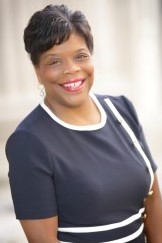At the Heart of Family Learning: Meeting the needs of families through family literacy programming
In January and February, I invited readers to join NCFL on our journey to scale and spread effective programs that meet the needs of families by establishing Family Learning Systems in 60 communities by 2030. I explored what it means to be a Family Learning System and how building coordinated and aligned systems that include family literacy, family engagement, and family leadership create pathways for families to find educational success and economic prosperity. For the next few months, we’ll dig deeper into each system component, starting with family literacy.
_2.jpg)
The four-component Family Literacy model was developed by NCFL’s founder Sharon Darling and her colleagues in 1985. Within a few years, the model had gained support in Kentucky and North Carolina and began to take root in communities across the country. In 1998, NCFL was instrumental in getting family literacy defined into federal language. This significant action helped elevate the field and brought greater attention to the importance and value of family literacy as a key lever for multigenerational impact of education and economic goals for parenting adults and their families.
This video was produced in 2019 in celebration of NCFL’s 30th anniversary
_1.png)
NCFL’s history is grounded in the federal definition of comprehensive family literacy services designed for families furthest from opportunity. For over 30 years, NCFL has delivered the four-component Family Literacy model that includes children’s education, adult education, parent education, and interactive parent-child literacy and learning activities (Parent and Child Together [PACT] Time®).
Parents and caregivers attend programming in schools or other educational settings at the same time as their children, which not only helps to address a significant barrier for parents to attend adult education—child care—but also helps to bolster children’s attendance in school and sets the example that education is important and a lifelong endeavor.
I recently traveled to Arizona to tour family literacy programming as part of the Arizona Statewide Family Engagement Center. I visited four districts and communities (Avondale, Yuma, Mesa, and the Gila River Indian Community) and with every conversation with leaders, partners, and parents, I heard loud and clear encouraging words of how family literacy is changing lives. Not only are parents learning new skills to help them but their dynamics in their homes are transforming. One parent shared that during her time of loss of many relatives during the COVID-19 pandemic, one thing that “kept her going” was the community she’s been a part of in her family literacy class. She comes to class not only to gain lessons and tips about parenting but also to be in community with other women working to improve their education attainment and economic goals.
The Family Literacy programming happening in Mesa Public Schools has not only been changing the school environment since 2003, but is beginning to shape a broader community agenda in Mesa. Family Literacy programming in Mesa (and across the country) supports families and communities by:
- Helping parents to understand what their children are learning in school and how to help them learn,
- Assisting parents in building their own job skills, social capital, and confidence in themselves,
- Helping children to read on grade level and attend more days of school, and
- Supporting a workforce that has the skills needed for today’s jobs.
The fantastic team of educators working in partnership with families to create the outcomes described above are pictured below:
.jpg)
During my visit, Dr. Andi Fourlis, superintendent of Mesa Public Schools, shared her excitement about the city’s interest in building on the family literacy success within the community as a fundamental initiative for change and progress. The school district and community’s interest have created the conditions for Mesa to engage in building out a comprehensive Family Learning System.
Family Literacy is just one entry point into a Family Learning System, though it is arguably the most foundational piece to building learning systems. Simply put, when families and children are doing well, communities thrive.
If your program or community is interested in supporting families by offering family literacy programming, please contact us at info@familieslearning.org.
For more information:
To hear from parents in communities throughout the country who have changed their lives and the lives of their children by participating in family literacy programming, check out this YouTube playlist. Additionally, our learning brief, From Theory to Outcomes, is a great primer on the efficacy of family literacy programming.
ABOUT THE AUTHOR

A lifelong educator and national thought leader for teaching and learning, Dr. Felicia C. Smith brings decades of valuable experience to advance NCFL’s mission of working to eradicate poverty through education solutions for families. Having served in a variety of leadership roles in P-12, higher education, nonprofit, and philanthropy, her career has allowed her to experience leading systems and develop a unique vantage point of a learner’s educational trajectory from preschool to adulthood. Smith holds an Ed.D. in education leadership and administration from the University of Kentucky, and an M.A. in elementary education with an emphasis on K-12 literacy development and B.S. in elementary education from the University of Louisville.